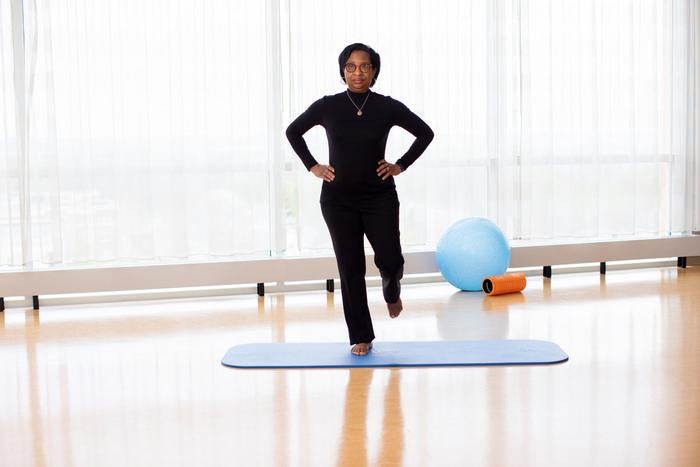Scientists reveal test you can do at home to measure ageing
Ability to stand on nondominant leg shows highest rate of decline with age
How long a person is able to stand on one leg is a better measure of ageing than changes in strength or gait, scientists say in a new study.
Previous studies have shown that a good balance, muscle strength and an efficient gait help people stay independent in their older years.
Unintentional falls are the leading cause of injuries among people aged 65 and above, with most falls resulting from loss of balance.
In the new study, published in the journal PLoS ONE, scientists tested 40 healthy, independent people over 50 on walking, balance, and knee and grip strength.
Half of the participants were under 65 and half 65 or over.

In the balance tests, participants stood on force plates in several situations for 30 seconds each. In one situation they stood on both feet with eyes open, in another on both feet with eyes closed, in a third situation they stood on the non-dominant leg with eyes open, and in the last they were on their dominant leg with eyes open.
They could hold the leg they weren’t standing on wherever they liked.
Scientists also used a customised device to measure the grip strength.
To test knee strength, they were seated and told to extend each knee as forcefully as possible.
In the gait test, participants walked back and forth on an 8m level walkway at their own speed.
Scientists concluded that standing on one leg—specifically the nondominant leg—showed the highest rate of decline with age.
“Changes in balance are noteworthy. If you have poor balance, you’re at risk of falling whether or not you’re moving. Falls are a severe health risk with serious consequences,” study senior author Kenton Kaufman said.
Balance is an important measure of ageing as it requires, in addition to muscle strength, input from vision as well as signals from the inner ear and other sense organs.

While grip and knee strength of the participants seemed to decline significantly by decade, the loss of this ability was not as much as of balance, the study states.
Grip strength was also found to decrease at a faster rate than knee strength, making it the better of the two factors at predicting ageing.
The gait parameters of none of the participants appeared to change with age.
Scientists also did not observe any sex differences in the gait and balance tests, indicating that a decline in these factors with age could affect the genders equally.
“The duration an individual, whether male or female, can maintain balance on one leg emerges as the most reliable determinant of ageing,” they concluded.
Join our commenting forum
Join thought-provoking conversations, follow other Independent readers and see their replies
Comments
Bookmark popover
Removed from bookmarks